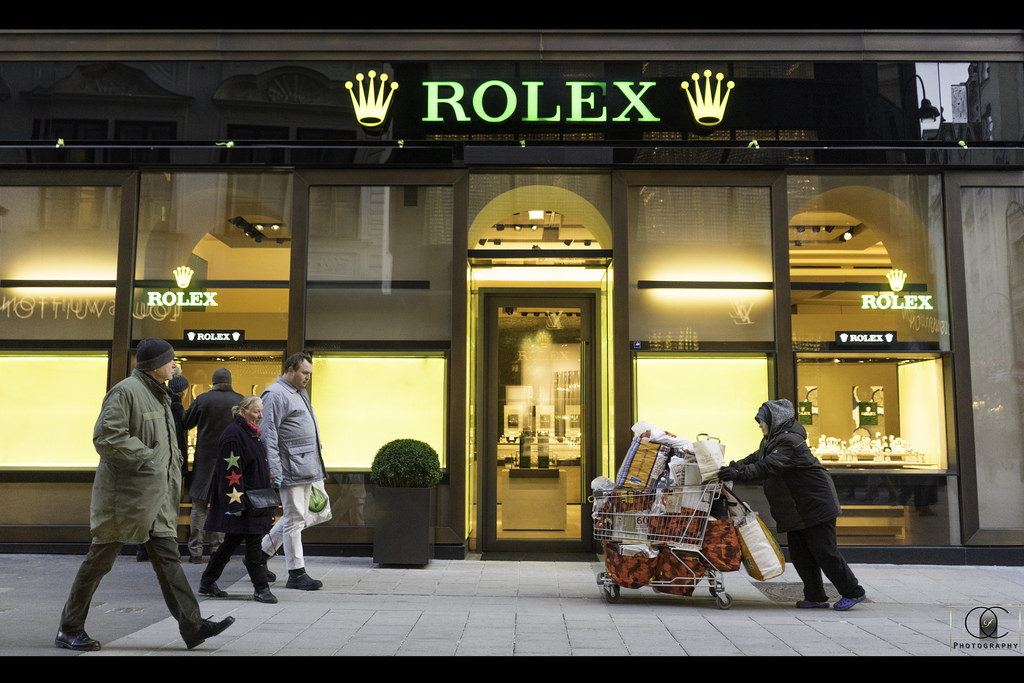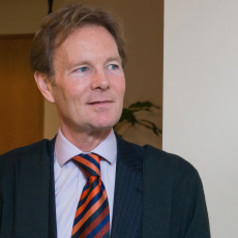This year’s Global Risks Report from the World Economic Forum warns that rising income inequality and societal polarisation could create further problems if urgent action isn’t taken -– and that’s after the car-crash that was 2016. Amen to that. It is somehow appropriate that the report is published just days after the death of Tony Atkinson, the social scientist who did more than any other to point to the importance of income inequality as an issue, and to argue that action could and should be taken.
We should all take note of Sir Andrew Dilnot, Warden of Nuffield College, who said Atkinson will be remembered for his “belief that things could be done to improve the world”. The new generation has its own figurehead in the battle against inequality, of course: the economist and author of Capital in the 21st Century, Thomas Piketty. It is no accident that Piketty had worked with Atkinson.
Both would have recognised the observation in this year’s risk report that:
Pervasive corruption, short-termism and unequal distribution of the benefits of growth suggest that the capitalist economic model may not be delivering for people.
It is ironic that the maxim “some are more equal than others” was coined by George Orwell as a critique of socialism. In the UK, we have had David Cameron’s mantra of “we’re all in this together”, followed by Theresa May’s rapid rowback on a pledge to put workers on company boards, all while regional and class inequality continues to rise. Some seem to be in this more than others – or at least, some seem to be taking more out.
Risk management
Along with economic inequality and societal polarisation, intensifying environmental dangers makes up the top three trends identified by the report as shaping global developments over the next ten years.
For the first time in this global survey, all five environmental risks were ranked both high-risk and high-likelihood. Extreme weather events emerged as the single most prominent risk. Crucially, the report – which surveyed 750 experts on 30 global risks – notes that the likelihood of positive action being taken on the environment is undermined by the political fallout from rising inequality – a nice example of how social, economic, and political factors are inevitably intertwined.
The research of such issues therefore requires interdisciplinary work, and action needs to be co-ordinated, significant, and sustained.
Artificial intelligence
Of all the risks highlighted, the idea that we are struggling to keep pace with technological change is perhaps the most eye-catching. Of the 12 emerging technologies examined in the report, the experts involved found artificial intelligence and robotics to have the greatest potential benefits, but also the greatest potential negative effects and the greatest need for better governance.
See? AI robots are a happy, smiley thing. Chris Devers/Flickr, CC BY-NC-ND
Excuse me if I sound despairing, but I recall my dad saying this 50 years ago, in the 1960s. The UK had by then not only invented the world’s first electronic programmable computer at Bletchley Park during the Second World War – a fact the British government kept secret for decades after – but also the world’s first intelligent robot at the University of Edinburgh in the early 1960s.
The UK government then commissioned the Lighthill Report which concluded there was no future in artificial intelligence or robotics, and funding was slashed, and the UK’s lead was lost.
End of history?
The warnings in the Global Risks Report are welcome. It suggests history did not end in 1989, when socialism was studiously dismantled, along with the Berlin wall, and when the Soviet Union collapsed in on itself. Capitalism may have won, but that may prove fatal. With no more competition as a social system, and no more constraints, we got capitalism unleashed.
The orgy of free market privatisation, deregulation, and globalisation led in 2009 to the world’s first recession since the 1930s; and instead of that causing a return to sanity, the frenzy continued unabashed. Ten years on from the 2007 beginnings of the global financial crash, the rich have become even richer.
In the US, between 2009 and 2012, the incomes of the top 1% grew by more than 31%, compared to less than 0.5% for the remaining 99% of the population. Tax avoidance and evasion have continued (despite being exposed by the Panama papers).
So, left to its own devices, the excesses of capitalism are, the report suggests, threatening the very system itself.
Where do we go from here?
One of the lessons being learned from the votes in favour of Brexit in Britain and the rise of Donald Trump in the US is that society has become more polarised geographically as well as in other ways. The UK electorate were told we were “all in this together”, and that the economy was booming. Bank of England Chief Economist Andrew Haldane reported in December that of the 12 UK regions only two were richer than before the 2007-08 financial crisis.
Any guesses? No need to hold you in suspense: it’s London and the South East. And economics commentator Aditya Chakrabortty reports that when interviewing people even in those two regions, people believed growth to be based on rising house prices and debt.
In the US, while Hilary Clinton won the popular vote, she lost the states that felt left behind, for whom Trump promised to “drain the swamp” – pointing to Washington DC and the political elite.
So, to have the effect it desires, the World Economic Forum’s report needs to be debated in working class hubs like Sunderland in the UK and Michigan in the US – not in London and Washington. And where are they planning to discuss it? Why the Swiss ski resort of Davos, of course.
Mind you, the lack of snow in the town this week might concentrate those corporate minds on the implications of climate change at the very least.
 Jonathan Michie does not work for, consult, own shares in or receive funding from any company or organisation that would benefit from this article, and has disclosed no relevant affiliations beyond the academic appointment above.
Jonathan Michie does not work for, consult, own shares in or receive funding from any company or organisation that would benefit from this article, and has disclosed no relevant affiliations beyond the academic appointment above.



 Parents abused by their children often suffer in silence – specialist therapy is helping them find a voice
Parents abused by their children often suffer in silence – specialist therapy is helping them find a voice  FxWirePro- Major Crypto levels and bias summary
FxWirePro- Major Crypto levels and bias summary  Office design isn’t keeping up with post-COVID work styles - here’s what workers really want
Office design isn’t keeping up with post-COVID work styles - here’s what workers really want  Britain has almost 1 million young people not in work or education – here’s what evidence shows can change that
Britain has almost 1 million young people not in work or education – here’s what evidence shows can change that  The ghost of Robodebt – Federal Court rules billions of dollars in welfare debts must be recalculated
The ghost of Robodebt – Federal Court rules billions of dollars in welfare debts must be recalculated  Locked up then locked out: how NZ’s bank rules make life for ex-prisoners even harder
Locked up then locked out: how NZ’s bank rules make life for ex-prisoners even harder  Disaster or digital spectacle? The dangers of using floods to create social media content
Disaster or digital spectacle? The dangers of using floods to create social media content 

































